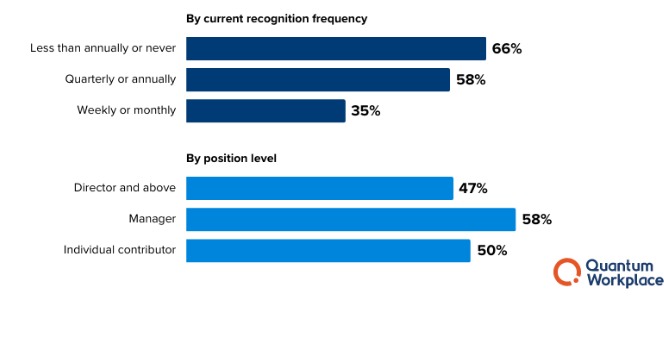“Is it that they want to sabotage me or are they plain difficult?”
This is a statement that many employees have used to express their frustration while dealing with colleagues.
You are not alone if you have used it on several occasions.
The modern workplace is an environment filled with challenges that can take a toll on employees' mental well-being.
From high workloads to difficult colleagues, these nerve-wrecking challenges can lead to increased stress, burnout, and decreased productivity.
However, if you acknowledge and address these challenges head-on, you can build resilience and find effective strategies to overcome them.
Today, Mental Health Wellness Kenya (MeHWK) will explore four common workplace challenges and provide practical tips on how to overcome them, promoting a healthier and more positive work environment.
1- Poor Working Relationships

Poor working relationships pose a significant workplace challenge as they can lead to increased stress, decreased productivity, and a toxic work environment. Poor workplace relationships can be one or more of the following:
- Colleague to Colleague: Disagreements can arise due to personality clashes, differing work styles, or conflicting goals.
- Manager to Employee: A strained relationship between a manager and an employee can create a hostile work environment due to a lack of support, unclear expectations, or micromanagement.
- Department to Department: Interdepartmental conflicts can arise when teams have different priorities or fail to understand each other's roles and responsibilities.
- Employee to Leadership: Occurs when employees feel disconnected from senior leadership or perceive a lack of transparency and communication from management.
When these relationships fail to work, employees struggle to communicate effectively, collaborate, or maintain positive interactions, creating tension and hindering teamwork.
Additionally, ineffective communication affects the entire company. It results in misunderstandings, misinterpretations, and a lack of clarity, leading to repeated errors, delays in project completion, and decreased overall productivity.
Further, workmates may become less willing to support one another, share knowledge, or contribute to a cohesive team environment. As a result, your quality of work drops, and your morale and engagement diminish.
Is that how you could be feeling? Here’s how to handle the situation.
How to Overcome
- Practice empathy and active listening: Put yourself in your colleague's shoes and strive to understand their perspective. Actively listen to their concerns and viewpoints without interrupting or judging.
- Communicate openly and assertively: Respectfully express your thoughts, ideas, and concerns to the individuals involved in the poor working relationship. Use "I" statements to express how their behavior or actions affect you.
- Seek clarification and provide feedback: If misunderstandings arise, seek clarification instead of making assumptions. Approach the person involved and ask for their perspective or further explanation. Similarly, provide constructive feedback on specific behaviors or situations causing friction, focusing on finding mutually beneficial solutions.
- Seek common ground and find shared goals: Identify areas of common interest or shared goals with the individuals you are having difficulties with. Emphasize the collective objectives and find ways to collaborate or support each other in achieving them.
2- Excessive Workload

Excessive workload means employees are burdened with an overwhelming amount of tasks, responsibilities, or projects within a limited timeframe. If it happens often, you eventually feel stressed, exhausted, and unable to meet deadlines.
The following table gives you a variation of excessive workload and how it plays out in the workplace.
| Excessive Workload | Description |
| Unmanageable workload | Volume of tasks that exceeds a reasonable capacity to complete within a given timeframe |
| Tight deadlines | Insufficient time to complete tasks adequately, resulting in rushed work and decreased quality |
| Lack of resources | Insufficient resources, such as staffing, technology, or support, forcing you to take on additional responsibilities |
| Constant multitasking | Juggling multiple tasks simultaneously without the ability to focus or allocate adequate time and attention to each one |
| Overtime and extended work hours | Regularly working beyond regular hours or outside of designated workdays to manage the workload |
Excessive workload places immense pressure on you and often leads to heightened stress levels. That's why you may be experiencing workplace anxiety, burnout, and a decline in mental health.
How to Overcome
- Prioritize and delegate tasks: Identify high-priority tasks and focus on those that have the greatest impact. Delegate tasks to capable team members to distribute the workload more evenly.
- Communicate with supervisors: If you feel overwhelmed, communicate openly with your supervisor. Discuss workload distribution, identify potential areas for support, or explore strategies to manage the workload effectively.
- Set realistic goals and boundaries: Break down larger tasks into smaller, manageable ones. Set realistic deadlines and communicate them to your colleagues. Establish boundaries by saying no to additional tasks when necessary to prevent over-commitment.
- Improve time management skills: Enhance your time management techniques by utilizing tools such as task lists, prioritization frameworks, and scheduling. These tools help organize and optimize your workday.
3- Lack of Recognition and Career Growth
You've poured out your heart into your work, day-in-day-out, for years and you still haven't been recognized or promoted.
Worse still, your pay has remained the same 
Quantum Workplace did a study and found that only 35% of employees receive recognition weekly or monthly. In addition, 1 in 2 employees, including managers, said they wanted more recognition for their work.
The following graph summarizes the desire for recognition by current frequency and position the person holds.

Employees often feel frustrated, disengaged, and unfulfilled when they feel undervalued and stagnant in their careers. Other effects you could be experiencing due to lack of recognition and career growth include:
- Demotivation
- Decreased job satisfaction
- Lack of growth opportunities
- Stagnation
- Limited skill development
- Reduced loyalty
- Seeking other opportunities
How to Overcome
- Seek feedback and showcase achievements: Request feedback from supervisors or colleagues to gain insights into your performance and areas for improvement. Take the initiative to share your accomplishments and contributions to ensure they are recognized.
- Identify and pursue learning opportunities: Take ownership of your professional development by seeking out learning opportunities, such as workshops, training programs, or online courses.
- Network and seek mentorship: Build relationships with professionals within and outside your organization. Engaging in networking activities and seeking mentorship can provide guidance, support, and potential opportunities for career advancement.
- Communicate career aspirations: Have open conversations with your supervisor or HR about your career aspirations. Share your goals, interests, and desire for growth within the organization. Consequently, you create awareness about your mission —which may open the door for potential career development opportunities.
Additional Ways to Overcome Workplace Challenges
- Build relationships beyond work tasks: Take the initiative to engage with colleagues outside of work-related interactions. Participate in team-building activities, social events, or informal gatherings to establish connections on a personal level.
- Take breaks and practice self-care: Recognize the importance of self-care in maintaining mental well-being. Take regular breaks during the workday to recharge and engage in activities that reduce stress. For example, go for a walk, meditate on God’s word, pray regularly, or engage in hobbies you enjoy.
- Build a support network: Cultivate relationships with supportive colleagues who can provide advice, perspective, and a listening ear. Having a network of individuals who understand your challenges and can offer support can significantly impact your ability to overcome workplace difficulties.
Mental Health Wellness Kenya Can Help
When workplace challenges overwhelm you, it is crucial to seek support and resources to navigate these difficulties. Mental Health Wellness Kenya (MeHWK) is the partner you need to help you process the challenges and find coping strategies.
We offer employee group therapy and training programs focused on promoting mental well-being in the workplace. Contact us today to find out how we can be of help to you or your organization.


